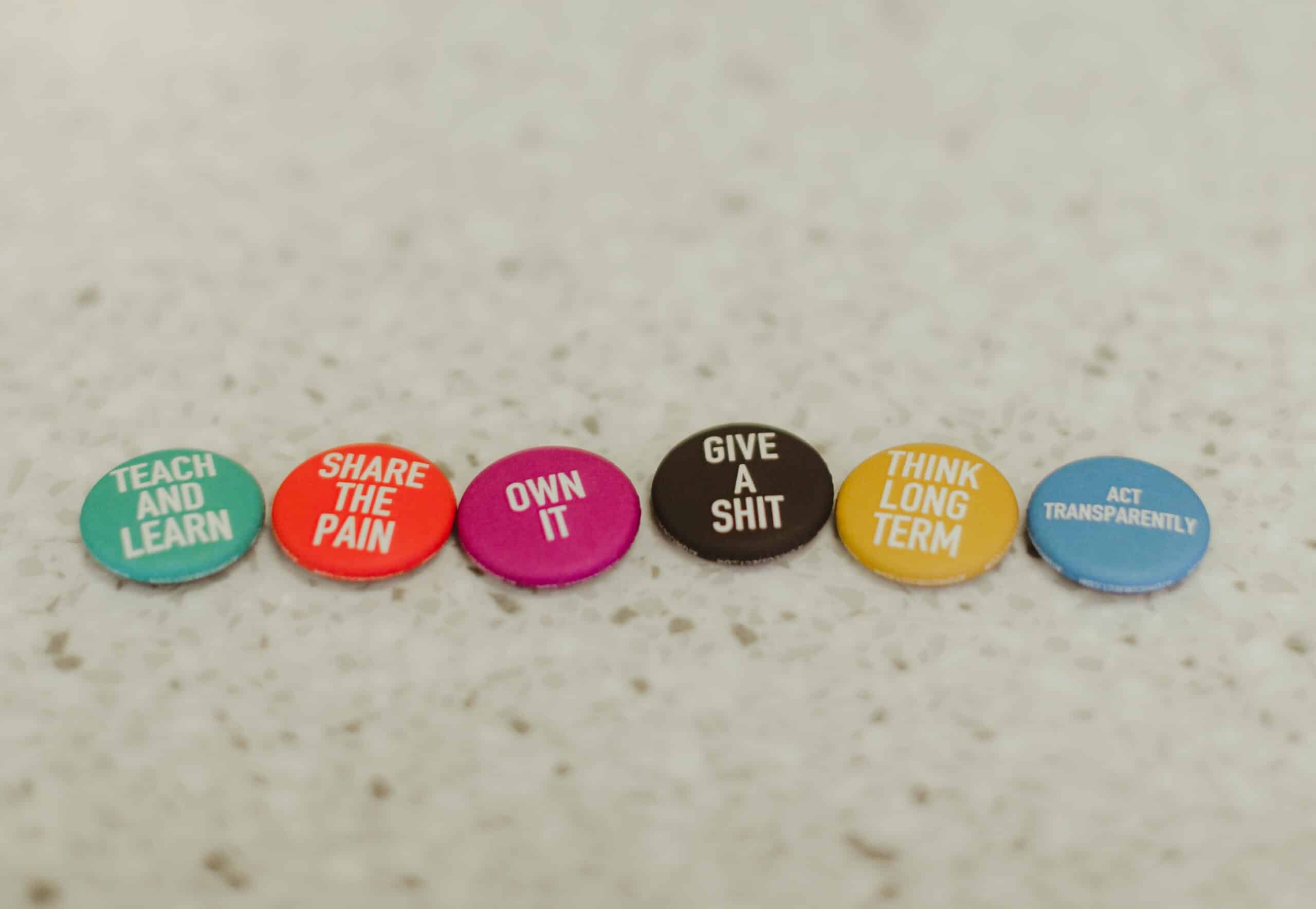This is the second of a two-part series on peer recognition. Read the first part here.
Fridays are my favorite day of the week, but not for the reason you might think. At Atomic’s Ann Arbor office, Fridays mean High Fives at our office stand-up. Peer recognition is the perfect way to wrap up the week — holding space to recognize the incredible work Atoms have done. The facilitator asks, “Who’s got High Fives today?” Then, volunteers step up to share who they want to recognize, what that person did, and why it matters. At the end, we all send a high-five into the air in celebration.
It might sound a little nerdy, and maybe it is. But calling out teammates for their cleverness, thoughtfulness, or perseverance is genuinely fun, and celebrating together as a team feels good. I always return to my desk feeling energized and engaged, full of those “warm fuzzies,” and ready to close out the week strong.
Why does engagement decline?
Of course, some Fridays are livelier than others — just like some retros have fewer shout-outs, or it seems like a while since we’ve seen someone new receive a Proton. Life goes on, but when recognition dips, I miss that extra shot of good cheer that makes teamwork flow smoothly. Even with structured recognition programs, participation can lag, and when it does, team dynamics shift, motivation fades, and the sense of community weakens.
So, why does participation decline? It’s rarely because team members don’t value each other’s contributions. More often, the pressures of tight deadlines, juggling projects, and client demands push recognition aside. In flat organizations like Atomic, where everyone is responsible for their own work without traditional hierarchies, recognition can easily take a back seat. And when fewer people feel engaged, teams can feel more disconnected, less collaborative, and less effective.
Here are three ways any team member can help jumpstart participation and bring back the sense of community:
Recommit to giving a shit about your teammates.
Whether or not you’re in a leadership role, you can help reignite peer recognition by making it a personal priority. Appreciating and recognizing your teammates and colleagues is part of your job in a flat organization. Take a moment each week to think about your colleagues’ contributions and give them a shout-out. For example, on my beloved High Five Friday, I take a few minutes to jot down some notes about folks whose work stood out during the week or the sprint to help me prepare. Recognition and all the wins that come with it—a motivated, inclusive, collaborative team — doesn’t happen without planning and preparation by engaged individuals.
Be the hype man you wish to see in the world.
Even in a flat organization, leading by example isn’t limited to management. Be the hype man you want to see in the world. If you notice recognition slipping, take the initiative to acknowledge your peers — whether it’s in a one-on-one, during stand-up, or on Slack. Start small and build up to more visible, higher-stakes recognition programs by practicing in close-knit team settings. By consistently recognizing your teammates, you show that appreciation matters, and others will follow your lead. It only takes a few people recognizing others consistently to inspire the whole team to join in.
Recognize everyday wins.
Peer recognition isn’t just for heroics and major wins. If we only celebrate flashy accomplishments, we’re overlooking a lot of valuable contributions. Make it a habit to recognize the small, everyday efforts that keep the team moving forward.
When things get busy and only the big wins stand out, I take a step back and think about who’s been doing the “glue work” that holds everything together — and I make sure to appreciate them. Whether it’s someone helping with a tricky task, offering support during a crunch, or consistently bringing a positive attitude, recognizing these everyday efforts keeps morale high and momentum strong. When we value both the big wins and the daily contributions, we build a culture where everyone’s efforts matter.
By being intentional about recognition, every team member can contribute to a more engaged, motivated, and connected team. You don’t need a formal title to reignite the culture of appreciation in your workplace — just the willingness to take the first step.

